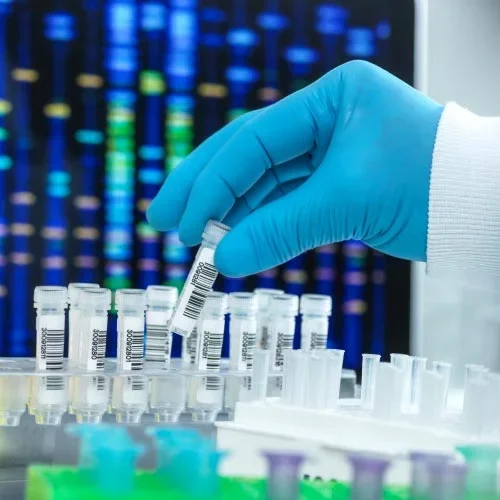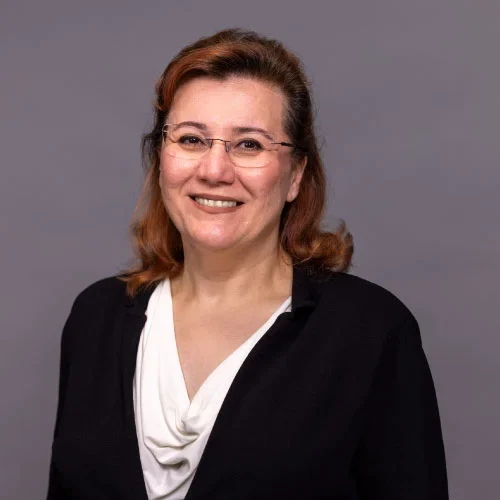Family Genetic Services

Carrier Screening is Family Screening is Peace of Mind
Carrier screening is a type of genetic testing used to assess genetic risks to a patient or couple’s offspring that might not be evident from personal or family history alone. Genes are the instructions within our cells responsible for making our bodies function properly. Humans have two copies of each gene – one inherited from each biological parent. If a gene is no longer functioning correctly due to harmful changes, a genetic condition may result.
At Southern California Fertility Center in La Jolla, under the leadership of Dr. Nastaran Foyouzi, one of the world’s leading experts in reprodcutvie genetics, we offer comprehensive carrier screening services. Dr. Foyouzi’s experienced genetics team, comprised of top embryologists and genetic counselors, ensures that each test is conducted with precision and care.
How Carrier Screening Works
- Cystic Fibrosis
- Tay Sachs
- Sickle Cell Anemia


Benefits of Carrier Screening
What Kind of Results Might I Receive?
- Positive: A positive result means you are a carrier for the specific condition or conditions listed. Because most conditions are recessive (expressed only when inherited from both biological parents), knowing the carrier status of both biological parents is important for estimating the chance of the condition occurring in a pregnancy.
- Negative: A negative result means you were not found to be a carrier for the specific condition or conditions listed. There is a small chance that someone with a negative test result could still be a carrier, because screening doesn't detect all carriers.
Alternative Options
If both partners are found to be carriers of the same disease, or if a female is a carrier for an X-linked disease, IVF with pre-implantation genetic testing (PGT) can be used. PGT allows the screening of embryos to determine if they are affected by the genetic disorder before attempting pregnancy. Only embryos not affected by the condition are transferred to the uterus to attempt pregnancy. If a couple chooses not to undergo IVF with PGT, knowing about the increased risk of having a child with a genetic condition can still be valuable. This knowledge can guide decisions about additional prenatal testing and help with reproductive choices of termination or prepare for an appropriate pediatric care team for after the baby is born.

Dr. Foyouzi's Expertise
Dr. Foyouzi and her team of reproductive geneticist, embryologists, and genetic counselors are dedicated to providing the highest level of care. Their extensive expertise ensures that patients receive accurate information and compassionate support throughout their fertility journey.
Contact Southern California Fertility Center in La Jolla to learn more about our carrier screening services and how Dr. Foyouzi’s team can assist you in making informed decisions about your family’s genetic health.
